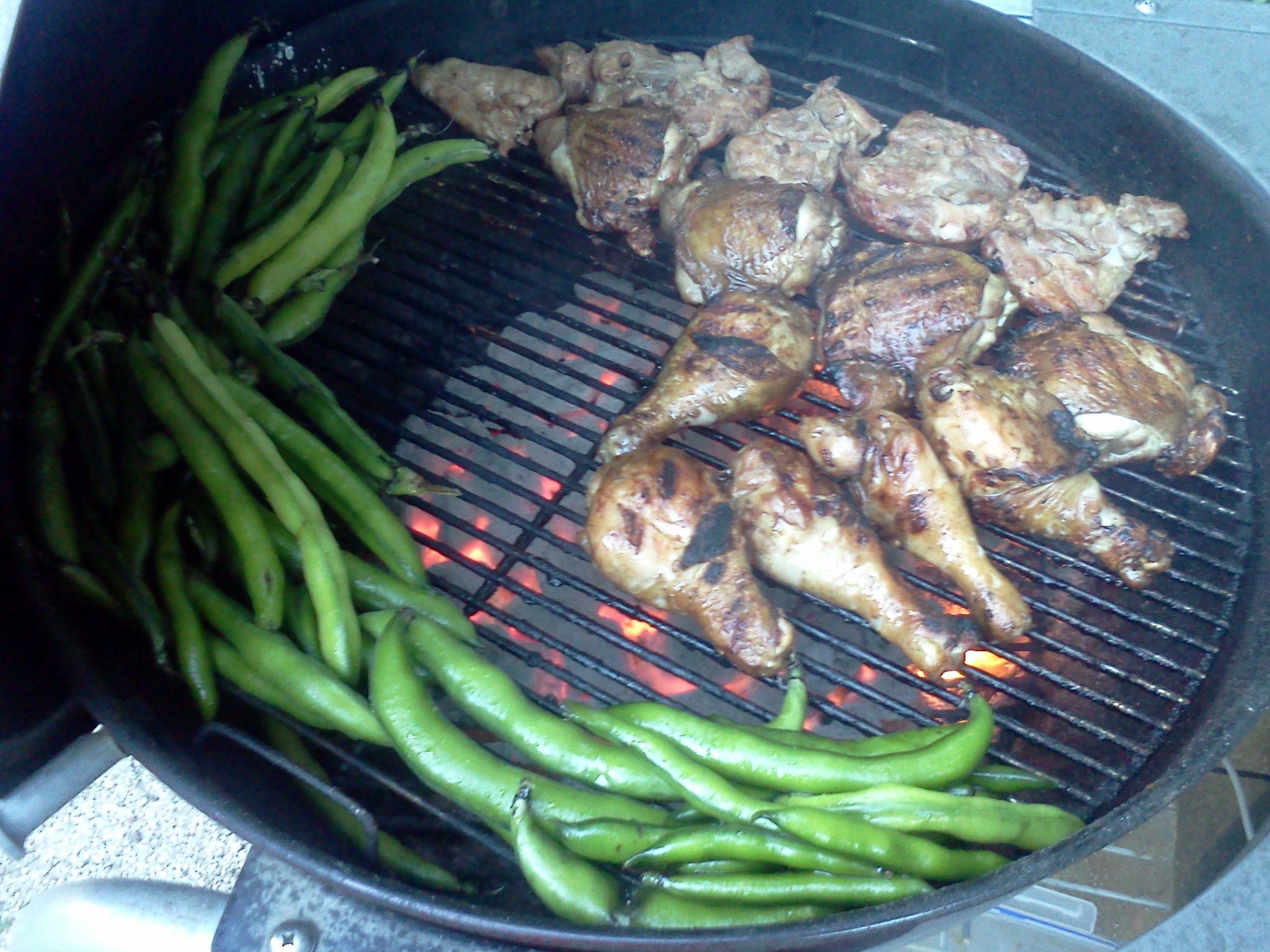Tips for Safer Outdoor Grilling
 This is the time of year when many of us like to spend less time cooking in the kitchen and more time cooking outside on our grills while enjoying friends and family. However, as a breast cancer survivor I have my concerns about how I can still enjoy the outdoor cooking experience without consuming foods that have developed cancer-causing compounds, (heterocyclic amines- HCAs and polycyclic aromatic hydrocarbons- PAHs) that get formed when meat is cooked at high temperatures. I did a bit a research and have come up with a few strategies I’d like to share with you to make your summer barbequing fun, a little less worrisome and possibly add a little culinary adventure to your meals.
This is the time of year when many of us like to spend less time cooking in the kitchen and more time cooking outside on our grills while enjoying friends and family. However, as a breast cancer survivor I have my concerns about how I can still enjoy the outdoor cooking experience without consuming foods that have developed cancer-causing compounds, (heterocyclic amines- HCAs and polycyclic aromatic hydrocarbons- PAHs) that get formed when meat is cooked at high temperatures. I did a bit a research and have come up with a few strategies I’d like to share with you to make your summer barbequing fun, a little less worrisome and possibly add a little culinary adventure to your meals.
• Add Colorful Vegetables
Focus first on grilling colorful vegetables and fruits and cut back on the amount of red and processed meats. Plant foods contain a variety of naturally occurring phytochemicals that provide anti-cancer protection.
Vegetables like asparagus, onions, mushrooms, summer squash, eggplant, green beans and corn on the cob are all excellent choices. They can be cut into chucks for kabobs, cooked in a grill basket, marinated or tossed with a small amount of olive oil and grilled whole.
Cut fruit in half before putting it on the grill: apples, peaches, pears and bananas all work well. Your fruit should be a day or two away from being completely ripe so it retains its texture. Brush the fruit or the grill with a little bit of oil to keep it from sticking. Serve as is or with a sprinkle of cinnamon.
• Marinate the Meat
If you choose to grill meat, try cooking chicken or fish instead of red meat, hamburgers and hotdogs. Whatever meat you choose, start by making up a marinade with some of your favorite herbs along with a bit of olive oil, vinegar or lemon juice. Marinating meat has been shown to reduce the formation of HCAs. It’s not understood precisely why, but some evidence points to the antioxidant properties found in the acids of the vinegar and citrus that are responsible. Even just 30 minutes in the marinade can help.
• Partially Pre-cook
You can do this in the oven or on the stove top to reduce the amount of time the meat sits on the grill exposed to high heat. Place the partially cooked meat immediately on the preheated grill to ensure safe food handling.
• Go Slow and Low
To reduce the amount of HCAs and PAHs that end up in and on the meat, slow down the cooking time with a low flame to keep burning and charring to a minimum. Cut off the visible fat to reduce flare-ups, cook food in the center of the grill and move coals to the side to prevent fat and juices from dripping on them. Be sure to cut off any charred portions of the meat before eating.
Whether you choose to grill your vegetables or not, attempt to fill half of your plate with colorful cancer fighting Veggies!!! Your body will thank you!
Happy grilling and Bon appetite!
Diane
Resources: American Institute for Cancer Research
